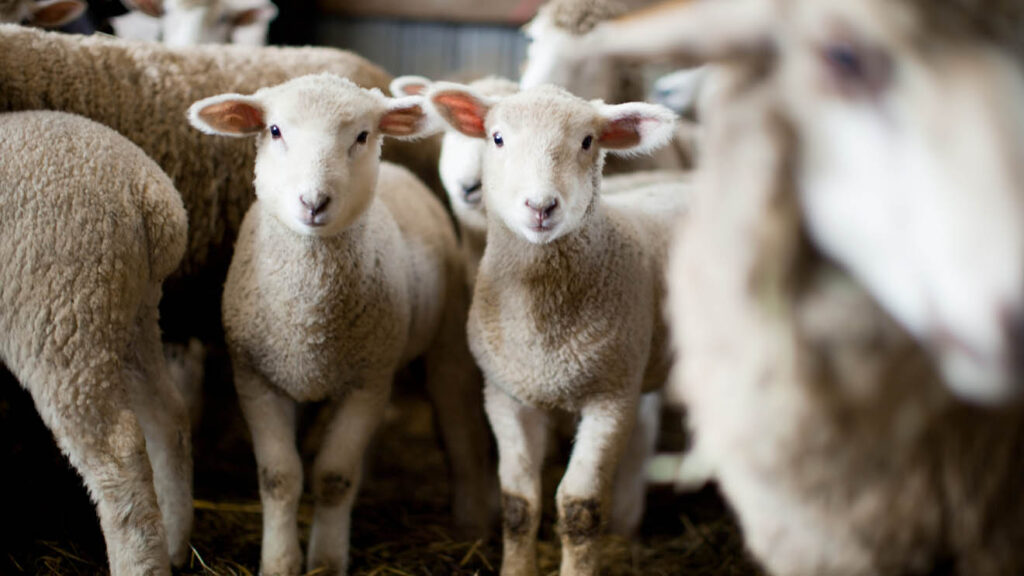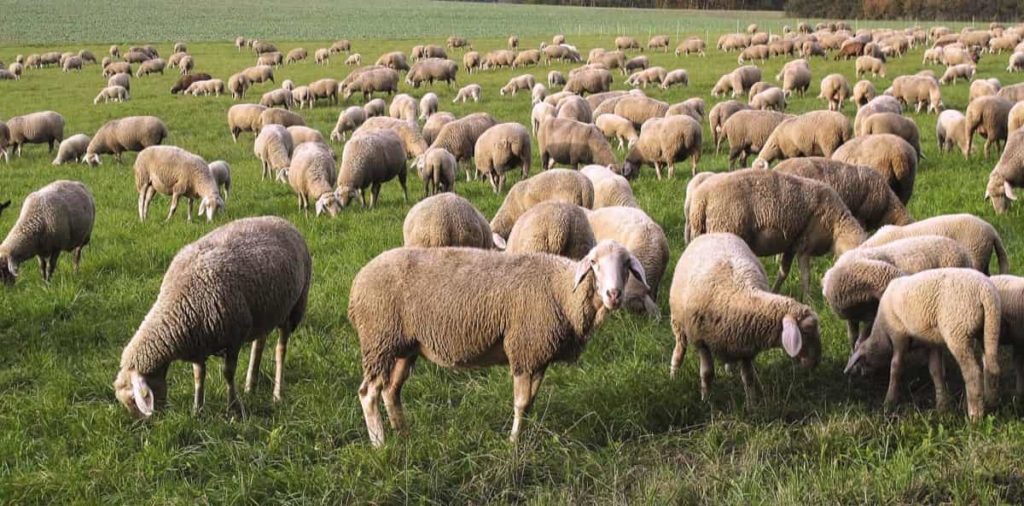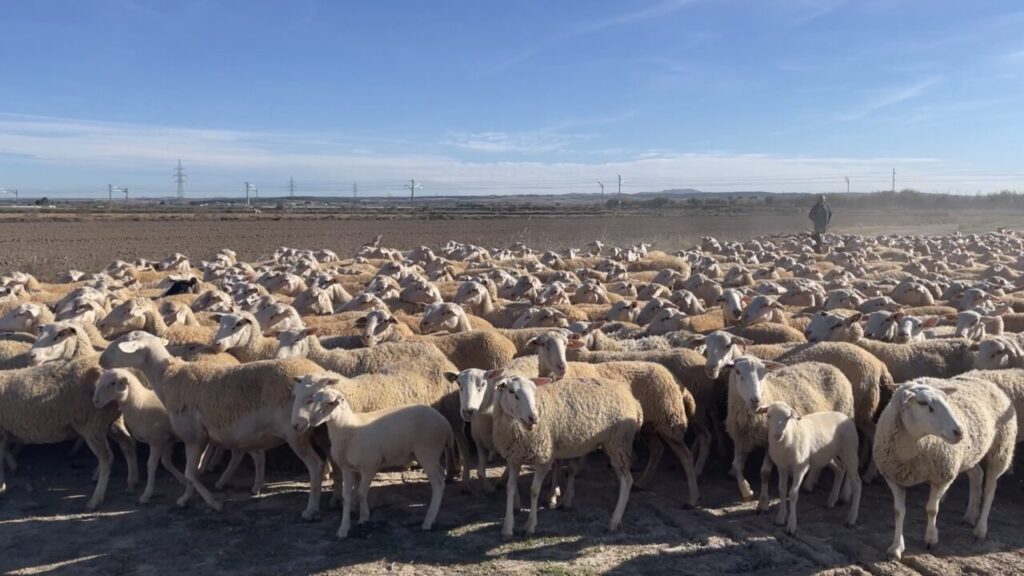Are you considering starting a sheep farm in Georgia? Whether you’re new to farming or looking to expand your agricultural business, Georgia offers the ideal climate and resources for raising sheep. In this guide, we’ll explore the benefits of sheep farming in Georgia, the costs involved, and everything you need to get started, including tips on choosing the best sheep breeds and managing your farm efficiently. If you’ve ever wondered, “Can you raise sheep in Georgia?”, or “What is the cost of sheep farming?”, you’ll find the answers here.
Can You Raise Sheep in Georgia?

Georgia’s warm climate and ample pastureland make it an excellent location for raising sheep. The state’s temperate weather allows for year-round grazing, which is essential for sheep farming. Sheep are hardy animals that thrive in a variety of environments, and Georgia’s mild winters and long growing season provide the perfect conditions for them to flourish.
Additionally, Georgia’s farming infrastructure, access to feed, veterinary services, and support from agricultural organizations make it an ideal place to start a sheep farm. From the rolling hills of North Georgia to the flatlands in the south, sheep farming can be successful in many parts of the state.
What Are the Costs of Sheep Farming in Georgia?
Starting a sheep farm in Georgia involves several upfront costs and ongoing expenses. Here’s a breakdown of the key factors to consider:
- Land and Infrastructure Costs:
- Land costs vary significantly depending on location, but Georgia offers affordable land options compared to other states.
- You will need fences, barns, and water systems. Expect initial costs of around $5,000 to $15,000 for these essentials.
- Sheep Purchase:
- The cost of purchasing sheep depends on the breed and age. For example, breeding ewes can cost between $150 and $400 each, while lambs are often priced lower.
- If you plan to purchase high-quality wool or meat breeds, expect to pay more. Popular breeds like Dorset or Suffolk can be priced higher due to their superior quality and yield.
- Feed and Supplements:
- While sheep can graze on pasture, they may require additional feed during the winter months or during droughts. Annual feed costs for a small flock of 50 sheep could range from $2,000 to $5,000.
- Veterinary and Health Care:
- Budget for vaccinations, parasite control, and regular check-ups. Veterinary costs can average $500 to $1,000 annually for a medium-sized flock.
- Labor:
- If you plan to hire help for lambing, shearing, or general care, factor in labor costs. However, many small sheep farmers manage the work themselves.
Where is the Largest Sheep Farm in Georgia?
While Georgia may not have the massive sheep farms found in other states like Texas or Wyoming, it still boasts several large operations. One of the largest sheep farms in Georgia is located in the northwest region, where the fertile soil and ideal grazing conditions allow farmers to raise hundreds of sheep. These farms are known for producing high-quality wool and meat, contributing significantly to the state’s agricultural industry.
Choosing the Best Sheep Breeds for Georgia’s Climate
When starting a sheep farm, selecting the right breed for your climate and farming goals is essential. In Georgia, the following breeds perform exceptionally well:
- Dorset:
- Known for its hardy nature, the Dorset sheep is ideal for Georgia’s climate. They’re a popular breed for both meat and wool production.
- Suffolk:
- A meat breed that does well in Georgia’s warmer climate. Suffolk sheep grow quickly and produce excellent quality lamb.
- Cheviot:
- Another versatile breed, the Cheviot is known for being hardy and thriving in Georgia’s varying temperatures.
- Southdown:
- Southdown sheep are perfect for beginners as they are docile and easy to manage, with high-quality meat production.
Key Tips for Successful Sheep Farming in Georgia

- Maintain Healthy Pastures:
In Georgia’s climate, it’s essential to rotate pastures regularly to avoid overgrazing and ensure the health of your sheep. Consider planting legumes like clover to enrich the soil and provide quality forage. - Manage Parasites:
Warm, humid environments can increase the likelihood of parasites. Use rotational grazing and deworming programs to maintain your flock’s health. - Lambing:
Proper planning for lambing is critical. Ensure that your sheep have a clean, dry, and safe place to give birth. Providing adequate nutrition to ewes before and after lambing will ensure healthy lambs. - Invest in Good Fencing:
Sheep are known to wander, so strong fencing is a must to keep your flock safe. Electric fencing is often a cost-effective option for keeping them contained.
Conclusion
Sheep farming in Georgia offers exciting opportunities for farmers interested in meat or wool production. With the right planning, breed selection, and investment in land and equipment, you can build a successful and profitable sheep farm in this fertile state.
Are you ready to start your own sheep farm? Be sure to conduct thorough research, calculate your costs, and prepare for a hands-on, rewarding farming experience. For more insights on sheep farming, check out our guide to farming in Georgia and how to choose livestock for your farm.
Want to learn more about sheep farming or other agricultural opportunities in Georgia? Drop your questions in the comments below or reach out to us for personalized farming advice!


